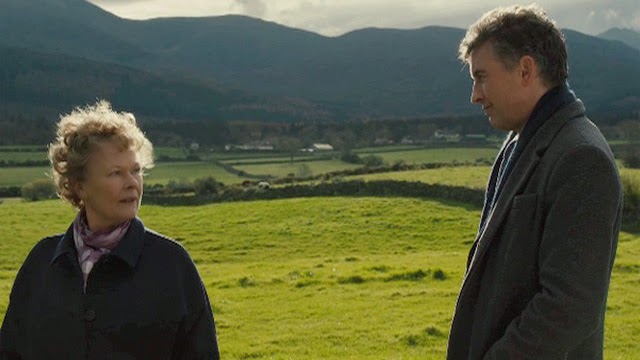There is this character called Mr Twiddle
in Enid Blyton’s books. He is a
kind-hearted soul but very forgetful and his wife is driven to distraction by
his actions. He is a bit like a
grand-dad in early dementia.
I used to think that it is impossible for
Mr Twiddle to constantly fall over the cat or put the stick of butter into the
oven instead of into the refrigerator, until I found myself putting the open
carton of fresh milk into the larder and the car keys in the shed. I am not
denying that memory lapses come with age, but then again, how is it possible
that my friends in their 70s and 80s can remember things with such precision
when I find it hard to remember what I ate for supper even?
It is recorded that
medieval Irish literature preserved truly ancient traditions in a form
virtually unchanged through centuries of oral tradition back to the ancient Celts of Europe. Oral
tradition and oral lore is cultural material and tradition
transmitted verbally down the generations. These stories are transmitted in
speech or song and may take the form, for example, of folktales, sayings,
ballads, or chants. Thus even without a writing system, it is possible for a
society to transmit oral history, oral literature, oral law and
other types of knowledge across
generations. Even the oral tradition of passing on tunes is ongoing in Irish
Traditional Music.
I have certainly never
been engaged in any form of serious oral tradition. At most. it was a nursery
rhyme here and there and a proverb or two.
I remember studying about short term and
long term memory power in a psychology class. Either I was too distracted by
the lecturer’s good looks or I merely retained the facts for the purpose of
doing well in the paper, I cannot remember much of it today. But one I think
that still lingers on my mind is creating a to-do list to sharpen memory
skills.
So I started a
to-do list. This to-do list was painstakingly entered into my filofax (that was
before smart phones made an appearance). Alternatively, I would stick post-its
on the fridge or soft board. Once I had completed the things on my to-do list,
I would cross them out, sort of a first- in- first- out system. It worked
perfectly for me and I did not have to carry too many things in my head.
Another thing that
could have caused my memory power to go into lazy mode is my personal mantra of
‘living for today’. Even if I had won the most coveted award for being the
greatest woman ever lived, I would have revelled in the euphoria of that
experience for just a while and then moved on because there is so much to life
than resting on yesterday’s laurels. This goes for bad experiences as well.
Someone once said the best way to punish your enemies is to forgive them
because life is too short to hate and so we march on into the future,
consciously not letting bad experiences gnaw us from within.
Some people that I
have met can remember every little milestone their children had achieved. I am
totally hopeless in that area and that is why I find photo albums and
scrapbooks most helpful. Just the other day I met a man who said he cut a tree
in our backyard twenty years ago. Now if he had been cutting trees for the most
part of his life, how could he have remembered which tree he had cut in which
year?
There are many
people who love to retell their stories. I find that there are more talkers
than listeners everywhere I go. Almost everyone seems to want to talk about
himself and expect others to listen. I have heard some of them tell the same
story over and over again, to the same group of people or to different groups
of people. So maybe this is the secret to increasing memory power – repetition.
Just when I thought
that maybe I was losing ‘it’, wikipedia threw some light into the occasional lapses in memory which do not necessary mean
signs of serious mental deterioration or the onset of dementia. This includes:
forgetting where you left
things you use regularly, such as glasses or keys; forgetting names of
acquaintances or blocking one memory with a similar one, such as calling a
daughter by another daughter’s name;
occasionally forgetting an appointment; having trouble remembering what you have
just read, or the details of a conversation; walking into a room and forgetting
why you entered; becoming easily distracted and not quite being able to
retrieve information you have “on the tip of your tongue.”
Games that
activate the brain should help. So maybe it is time to reach for the crossword
puzzle or Sudoku.
Now who is Mr
Twiddle that started me on the writing of this article?
Source: http://www.nst.com.my/opinion/columnist/now-what-was-that-again-1.539177
Source: http://www.nst.com.my/opinion/columnist/now-what-was-that-again-1.539177





.jpg)